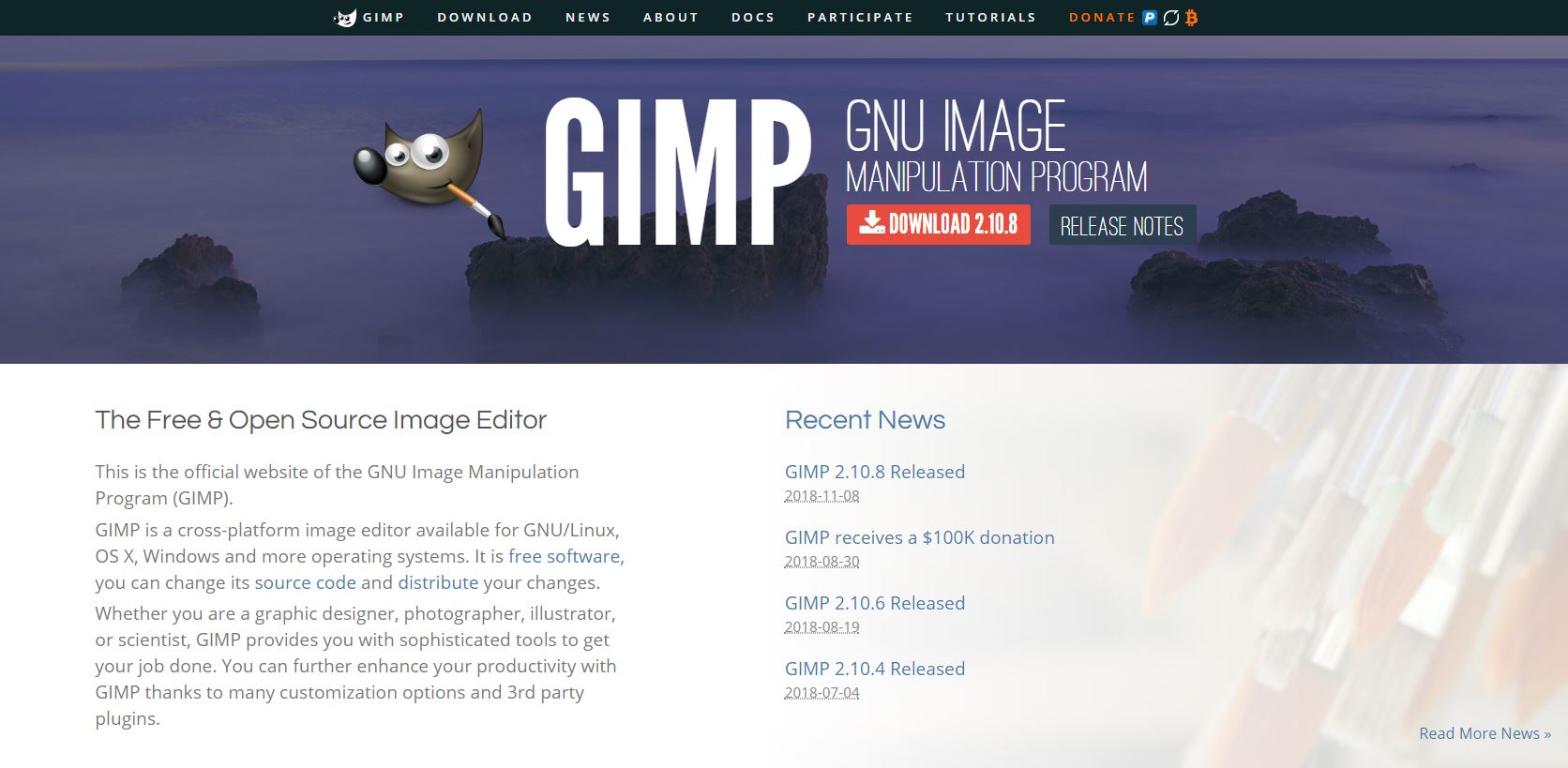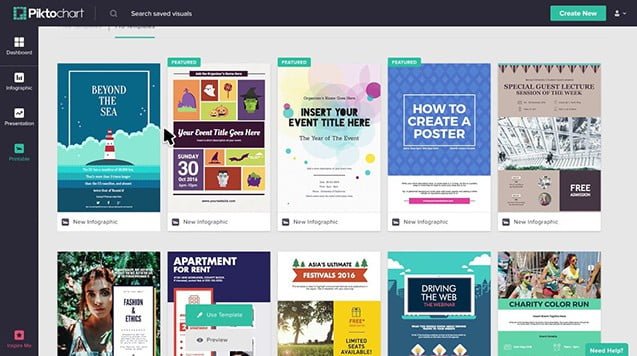Content Writing vs Copy Writing: What’s the Difference?
Content writing vs copywriting. It’s a debate that often confuses marketers. However, don’t underestimate knowing…
 There are a lot of blogs on the internet in 2018, and there are a huge number of people who are earning a full-time income from their blogging. Although this might seem like an easy route to making money, it’s a lot harder to create a successful blog than should be presumed. It involves a lot more than simply writing a quick article and posting it as soon as possible.
There are a lot of blogs on the internet in 2018, and there are a huge number of people who are earning a full-time income from their blogging. Although this might seem like an easy route to making money, it’s a lot harder to create a successful blog than should be presumed. It involves a lot more than simply writing a quick article and posting it as soon as possible.
If you’re currently considering the launch of a new blog, or you’re already running one and you’d like to improve it, there are numerous readily available online tools that can help with your blog writing and ensure that you are better placed to make the most from your blog ambitions. What’s more, digital marketing agencies like ourselves, offer a wide range of content marketing services that’ll help all aspiring bloggers.
Using these tools is a good first step to creating a blog that people will want to read, and when managed correctly, will make it far more likely that they will return to your blog again and again.
 This is a crowdsourced question and answer website that can help you to generate content ideas that your readers will want to read. Consider the keywords that sum up your blog’s niche area, and simply type those keywords into the search bar. You will then be able to see the most high-profile questions that people are asking that are related to your own area of expertise, which is a great way of formulating ideas for your next blog article. If you’ve been struggling with constantly coming up with ideas for blog content, then Quora should be the first place that you look.
This is a crowdsourced question and answer website that can help you to generate content ideas that your readers will want to read. Consider the keywords that sum up your blog’s niche area, and simply type those keywords into the search bar. You will then be able to see the most high-profile questions that people are asking that are related to your own area of expertise, which is a great way of formulating ideas for your next blog article. If you’ve been struggling with constantly coming up with ideas for blog content, then Quora should be the first place that you look.
Remember to look through the answer threads as well, because these can very often lead to further ideas that will help you to create the content that people want to read. Another good use of Quora is to actually answer questions yourself and share the responses to your social media. Doing so will go a long way toward helping you establish yourself as an expert in your field.

There are a number of title generators online that can help you come up with ideas for your blog’s content, but the latest addition to the blogger’s toolbox should definitely be Answer the Public. Just like Quora, this can be used at any time to generate content ideas, and the aesthetic of Answer the Public makes it also one of the most visually appealing and useful websites for bloggers.
Regarding sheer numbers, it’s hard to equal the responses that Answer the Public generates at a time, with up to 800 titles suggested using just one keywordKeywords are the words and phrases that potential customers might search for to find your business.. It is a great way of gathering ideas for not just one blog post, but for many, and the more ideas that you already have prepared, the easier it will be to create the content that will make up your blog.
 If it’s ideas that you’re after and you want to stay relevant, then Twitter is always going to be a valuable resource. Have a look at the platform and specifically tailor your trending topics so that they are hyper-focused on your areas of interest. You can do this by subject matter and by geography, so take advantage of both, and you will end up creating a wider variety of content.
If it’s ideas that you’re after and you want to stay relevant, then Twitter is always going to be a valuable resource. Have a look at the platform and specifically tailor your trending topics so that they are hyper-focused on your areas of interest. You can do this by subject matter and by geography, so take advantage of both, and you will end up creating a wider variety of content.
The most talked about news is the basis for trending topics, and is a great way to boost your blog’s engagement, brand reach, and even click-throughs. Remember too that Twitter is a fantastic platform for promoting your relevant content, although it’s essential that you don’t become frivolous with controversial posts. Not only is this tacky, but it can also dissuade people from reading your blog. However, in terms of audience engagement, it’s hard to beat Twitter as a professional resource.
 There are several calendars that you can use to help your blog, but the easiest to repurpose is always going to be the Google Calendar. The reason that you need a calendar is that if you want to establish your blog as a professional site, then you need consistency, and that will be much harder to achieve if you don’t have a content schedule planned.
There are several calendars that you can use to help your blog, but the easiest to repurpose is always going to be the Google Calendar. The reason that you need a calendar is that if you want to establish your blog as a professional site, then you need consistency, and that will be much harder to achieve if you don’t have a content schedule planned.
Content schedules can keep you much more organised, and Google Calendar is perfect whether you’re posting one piece of content a day or several. Having a detailed content calendar will make it easier to write or create your content because you will already have it all formally planned and scheduled, and that level of organisation is important if you want to achieve consistency. When 42% of people admit that they are more likely to complete a task if it is written down, then the worth of the Google Calendar should be fairly obvious.

If you want your writing to be more easily readable, then it’s worth having a look at Hemingway. This tool specialises in making certain that your content is easy to read, and it very successfully highlights your text if it is too complex or too dense. If you want your writing to become clearer, then the Hemingway editor is indispensable.
There are alternative options available if you want to improve your writing, but Hemingway is specifically designed with readability in mind. Although it does highlight basic errors as well, it’s primary use is to reduce difficult sentences and make it easier for your readers to understand what you’re trying to say.
It’s easy to use, but too many bloggers refuse to use Hemingway (or similar sites) because they consider it to be too much work to edit what they have already taken the time to write. If you’re hoping to make your blog a success, then avoid this way of thinking and always check your content before posting it online.
 Images are going to be important to your blog. You can use images to break up text or clarify a point that you’re trying to make, and readers will be far more likely to read long-form content if it is broken up into easily digestible sections with image breaks. The problem for bloggers is finding those images.
Images are going to be important to your blog. You can use images to break up text or clarify a point that you’re trying to make, and readers will be far more likely to read long-form content if it is broken up into easily digestible sections with image breaks. The problem for bloggers is finding those images.
While there are a number of tools available that can provide you with free images, it is much safer to use your own. That’s where Gimp comes in. Everyone has heard of Photoshop, but the expense is very off-putting for most. Gimp is a free version of Photoshop, and while it may not have all of the bells and whistles of Photoshop, it is perfect for those who wish to use images without resorting to stock photos that are already being used by multiple blogs and websites.
Remember that people are more likely to share images than anything else, so if you want your blog to stand out, then original, self-created images are the way forward.

Your blog is going to need to incorporate a mailing list as soon as possible, and that’s why you’re going to need to start using MailChimp. Not only is it the biggest and best way to send newsletters and special offer promotions to large numbers of subscribers, but it also allows for a high level of automation as well. If you have less than 2,000 contacts for your newsletter, then MailChimp is also free to use as well.
Emails are good marketing for your blog because they can be targeted directly to people who have already established an interest in your blog, and as a result, they can help you to establish more of a connection with your audience. Easy to use no matter your level of tech proficiency, the most important element of MailChimp is its huge range of automation options. Not only can you schedule your emails to be sent at a predetermined time, but you can also automate special messages for birthdays and special occasions as well, further connecting with your audience.
 Although Hemingway has already been discussed, it’s worth looking at Grammarly for a more rounded approach to your writing. Less concerned with style than Hemingway, Grammarly has a firm focus on basic grammar and spelling. It’s easy to use as well – simply copy and paste your blog article into its checker, and you’ll have every error highlighted individually and suggestions on what to change.
Although Hemingway has already been discussed, it’s worth looking at Grammarly for a more rounded approach to your writing. Less concerned with style than Hemingway, Grammarly has a firm focus on basic grammar and spelling. It’s easy to use as well – simply copy and paste your blog article into its checker, and you’ll have every error highlighted individually and suggestions on what to change.
For those without a full-time proofreader, Grammarly is indispensable. It can also be tailored to your language type as well, with different spelling scans for British, US, and Australian English all able to be checked. The free version of Grammarly is perfectly adequate, but if you’re serious about getting the most from the platform, then it’s worth paying for the premium version, which will highlight more errors than the basic version.

Not all blogs have to be packed from top to bottom with text. There are many varieties of blog content that you can make use of, and you should never limit yourself to just one format. Infographics can be great, quality content, and people are also more likely to share a well-designed infographic than a lengthy written article. Piktochart is simple to use, and the more that you try out, the more detailed and professional-looking imagery you will be able to create. With a template format that allows you to build from the foundation up, your blog could be filled with a variety of graphics that will be both informative and relevant to your blog’s speciality.
Blog writing does not come naturally to all, and so if you struggle to write content, find it hard to market it adequately and do not have a content strategy in place, we at Click Intelligence can help. We have a team of SEO experts (to offer a helping hand in the technical aspect of content writing), and a talented pool of in-house copywriters and editors who can write and proof the content itself. Contact us for any further information – we’re more than happy to discuss any questions you may have!
If Google's latest Web Core Vitals update has caused havoc to your SEO results, find your solution in our latest in-depth ebook.
Digital marketing is a requirement for any business that wants to entice, engage, and excite customers online. When putting together…
Download our free guide of how to run a successful outreach campaign.